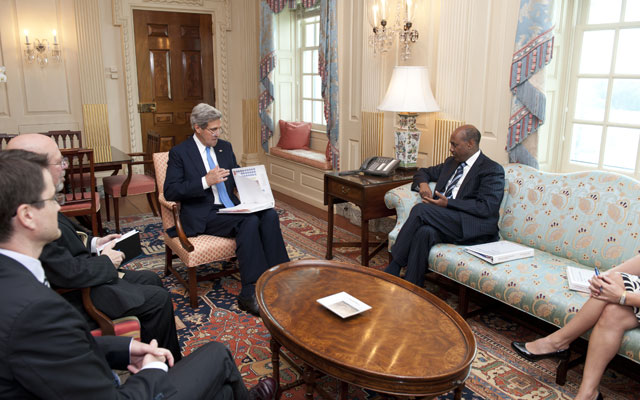Millennium Challenge Corporation Goes Off Course in Georgia
James M. Roberts /

U.S. Secretary of State John Kerry meets with Daniel Yohannes, CEO of the Millennium Challenge Corporation (State Department/Sipa USA/Newscom)
The U.S. government’s Millennium Challenge Corporation (MCC) Board of Directors recently approved a five-year, $140 million compact with the nation of Georgia “to increase the quality of human capital by investing in science and technology education and workforce development” with an emphasis on science, technology, engineering, and math (STEM)” and a special focus “on increasing women’s participation in STEM professions.”
While these are certainly laudable goals, they epitomize the old development assistance paradigm of the U.S. Agency for International Development that focused on the fad of the moment among U.S. elites. Congress created the MCC in 2003 because such traditional foreign aid failed to improve reliably economic growth, which is the most important solution to poverty and under-development.
The MCC’s approach is supposed to be centered on country ownership in order to confront corruption more effectively. It should insist that the government of any country receiving assistance from U.S. taxpayers create greater transparency and accountability. In fact, the MCC’s promotion of targeted policies to fight corruption and stimulate private-sector-led economic growth have been lauded by many foreign aid experts for creating a series of “MCC effects” that led to measurably positive economic development.
MCC funding for STEM education in Georgia, however, appears to be off-track. Although Georgia’s score of 72.2 made it the 21st freest in the 2013 Index of Economic Freedom, the country still needs to tackle more effectively the hangover effects of Soviet-era corruption and strengthen the rule of law. The MCC should consider revising its program for Georgia to put the emphasis of the agency’s core mission back where it belongs: promoting the rule of law, good governance, and economic freedom.
